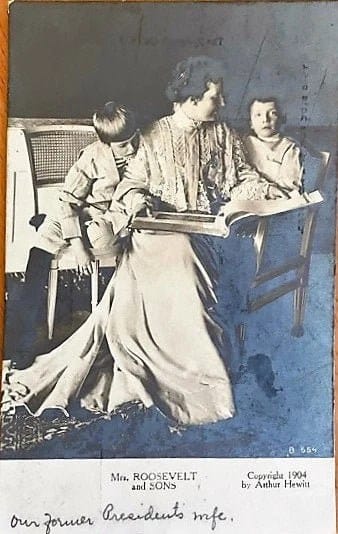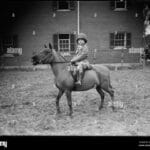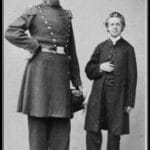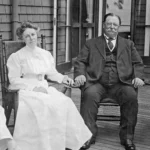A Life Cut Short: The Story of Alice Hathaway Lee Roosevelt
Alice Hathaway Lee Roosevelt, the first wife of President Theodore Roosevelt, is often a lesser-known figure in history. However, her tragically short life held a profound impact on the man who would become an American icon. This article delves into her vibrant spirit, the deep love she shared with Theodore, and how her untimely passing shaped his life and legacy.
Alice Hathaway Lee, nicknamed “Sunshine” for her cheerful disposition, was born into the upper echelons of Boston society in 1861. Known for her intelligence and wit, she captivated the young Theodore Roosevelt when they met in 1878. Their courtship was a whirlwind, culminating in a joyous wedding on October 27, 1880, when Theodore was just 22 years old.
Their happiness, however, was tragically cut short. On February 12, 1884, Alice gave birth to their daughter, also named Alice. Just two days later, she succumbed to what was then diagnosed as typhoid fever, likely complicated by undiagnosed Bright’s disease (kidney failure), a serious illness that often went undetected during pregnancy at the time.
The impact of Alice’s death on Theodore was devastating. He poured his grief into his diary, famously writing, “The light has gone out of my life.” He would later refer to the years following Alice’s and his mother’s deaths (they died within hours of each other) as “the years that the locust hath eaten.” This period of intense sorrow left an indelible mark on him, influencing his views on family, his approach to politics, and perhaps even how he viewed his own destiny.
The Mystery Surrounding Alice’s Death
The official cause of Alice Hathaway Lee Roosevelt’s death was listed as typhoid fever, but some historians suggest that Bright’s disease, a serious kidney condition, may have played a significant role. During the 19th century, Bright’s disease was a relatively common but often-fatal ailment. The symptoms, particularly in the early stages, could be easily mistaken for common pregnancy discomforts, making early detection difficult. The limited treatment options available at the time made the situation even more dire.
It’s impossible to know for certain if Alice’s death could have been prevented with today’s medical knowledge. However, the circumstances surrounding her passing highlight the challenges and limitations of healthcare during that era.
The Enduring Impact of Alice’s Legacy
Despite her short time with Theodore, Alice Hathaway Lee Roosevelt’s influence resonated deeply. Her memory served as a source of both pain and inspiration for the future president. He carried her memory with him, rarely speaking of her directly but ensuring her presence was felt.
Their daughter, Alice Lee Roosevelt, inherited her mother’s spirit and became a prominent figure in her own right. Known for her sharp wit and unconventional ways, she was often referred to as “Princess Alice” and became a socialite and writer, defying societal expectations of the time.
While we can only speculate about what might have been had Alice lived, her story offers a poignant reminder of the fragility of life and the enduring power of love and loss. It also adds a layer of depth and humanity to our understanding of Theodore Roosevelt, revealing a man shaped not just by triumph but by profound personal tragedy.
Looking for More Information about American History?
If you’re interested in learning more about significant figures and events in American history, you might find these articles fascinating:
- Abraham Lincoln $1 Coin: Discover the history and significance of this coin featuring the 16th President of the United States.
- Beatrice Wiesel: Learn about the extraordinary life of this activist and Nobel Peace Prize winner who dedicated her life to promoting human rights.
- Unlock Elemental 2 Secrets: Actionable Insights Now - April 2, 2025
- Lot’s Wife’s Name: Unveiling the Mystery of Sodom’s Fall - April 2, 2025
- Photocell Sensors: A Complete Guide for Selection and Implementation - April 2, 2025
















